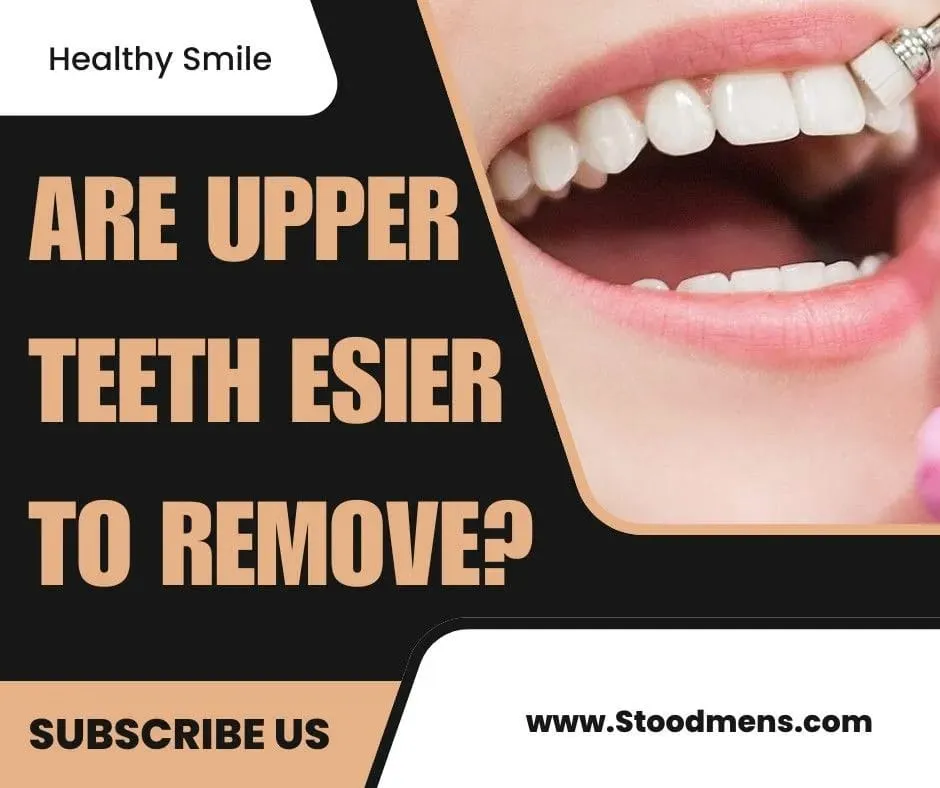
Are upper teeth easier to remove
I didn’t expect to be writing about this, honestly. Tooth stuff wasn’t even on my radar until I found myself lying awake at 3 a.m., clutching my jaw, hoping the pain would magically disappear. Spoiler: it didn’t. The next morning, I was at the dental clinic, face half-numb just from the stress.
When the dentist looked at my X-ray, he told me one of my upper molars had to go. No sugarcoating it. That sucker was done. And the first question I asked, like many people do, was—are upper teeth easier to remove?
It sounded like a dumb question at the time, but as it turns out, it’s actually a common one.
Is It True That Upper Teeth Are Easier to Pull?
According to my dentist, and later confirmed by some research and actual experience, yes. In most cases, upper teeth tend to come out with a little less trouble. The bone in the upper jaw is just… softer. Not soft like a sponge or anything, but softer than the dense lower jawbone.
That difference helps when the dentist is rocking the tooth back and forth, trying to loosen it. It usually takes less effort, which means less pressure, less cracking, and less “ugh” for the patient.
And because upper teeth are more accessible, the whole thing becomes a bit smoother. There’s less tongue in the way, fewer tight angles, and better visibility. So yeah, the short version is, are upper teeth easier to remove I mean… yeah, most times it’s fine. But y’know, not always. Depends, really.
But hey — it’s not always smooth sailing.
Look, before you get too comfy thinking it’ll be over in minutes, let’s be honest. Just ’cause the tooth’s up top doesn’t mean it’s gonna pop right out. Sometimes it’s stuck in there like it doesn’t wanna leave, man. Sometimes the roots are curved, or one root is thicker than the others, or it’s fused with the bone a bit.
That’s the kind of stuff your dentist checks out in your X-ray beforehand. They can’t promise anything without knowing exactly what’s going on under the surface.
My tooth, for example, looked fine on the X-ray—nothing weird or dramatic—but still took a bit of gentle pushing to get it moving. It wasn’t hard, just… not instant. So while upper teeth can be easier, don’t assume it’ll be over in two seconds.
The Actual Extraction Part Wasn’t What I Expected
I’ve seen movies where they yank teeth like it’s some medieval torture scene. That’s not even close to how it really is.
They numbed my whole upper side and waited a few minutes before starting. I didn’t feel any pain, just pressure. It was kind of weird, like someone was trying to loosen a bottle cap… in my skull. But not painful.
I was more distracted by the sounds. So yeah… there were these weird little crackly sounds, like tiny crunches. Kinda freaked me out at first, not gonna lie. But apparently, it’s totally normal nothing to worry about. Your tooth is connected to ligaments and roots, and those sounds are just part of it coming loose. It took maybe three or four minutes, and then it was over.
When the dentist said, “You’re all done,” I kind of blinked and asked, “Wait, really?” That was it.
Is Recovery Easier Too?
Wasn’t really sure what was gonna happen once that numb feeling started to fade. Kinda figured I’d be all swollen or have some bruises or whatever — turns out it wasn’t as bad as I thought.
But surprisingly, the recovery was mild. Just some soreness and tenderness in the area, nothing dramatic.
A few dentist friends online and even in forums mentioned that healing from an upper tooth extraction can be quicker than from a lower one. It’s mostly ‘cause your upper jaw’s not that thick, honestly. Doesn’t need to rebuild a ton of stuff. So your body doesn’t go full-on repair mode like it does when it’s one of those big lower molars.
Still, I played it safe. I avoided using straws, stuck to soft foods, rinsed gently, and rested for a day or two. I didn’t want to test my luck with dry socket.
Anxiety Is Normal, Don’t Beat Yourself Up
Let me say this for anyone who’s anxious: it’s okay. I was tense for days before my appointment. I googled everything, read way too many personal stories, and had convinced myself I was going to faint or something.
If you’re wondering are upper teeth easier to remove, chances are you’re nervous too. But from someone who’s now on the other side of it, I can tell you, it really wasn’t as scary as I imagined.
The waiting, the worry, the what-ifs… they were worse than the procedure itself. My advice? Don’t overthink it. Talk to your dentist. Ask them questions. Bring a friend along if it helps. Trust me, dentists have seen it all.
Final Takeaway: Are Upper Teeth Easier to Remove?
After everything, my answer is simple—yeah, they usually are. Upper teeth tend to have softer bone around them, which makes removal quicker and smoother in many cases. They’re easier to reach, and healing can be a little faster too.
But everyone’s different. Your tooth might be straightforward, or it might have its own little quirks that make things slightly more complicated. And that’s okay.







